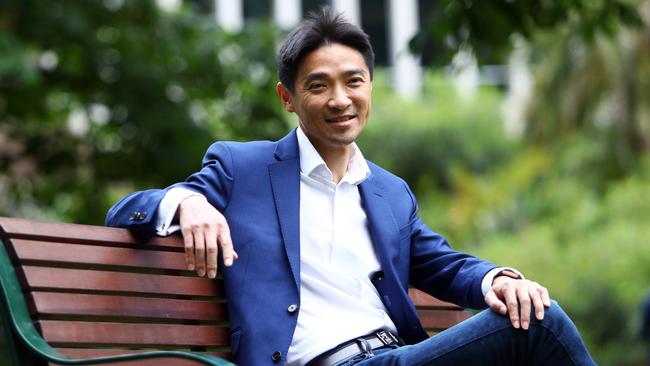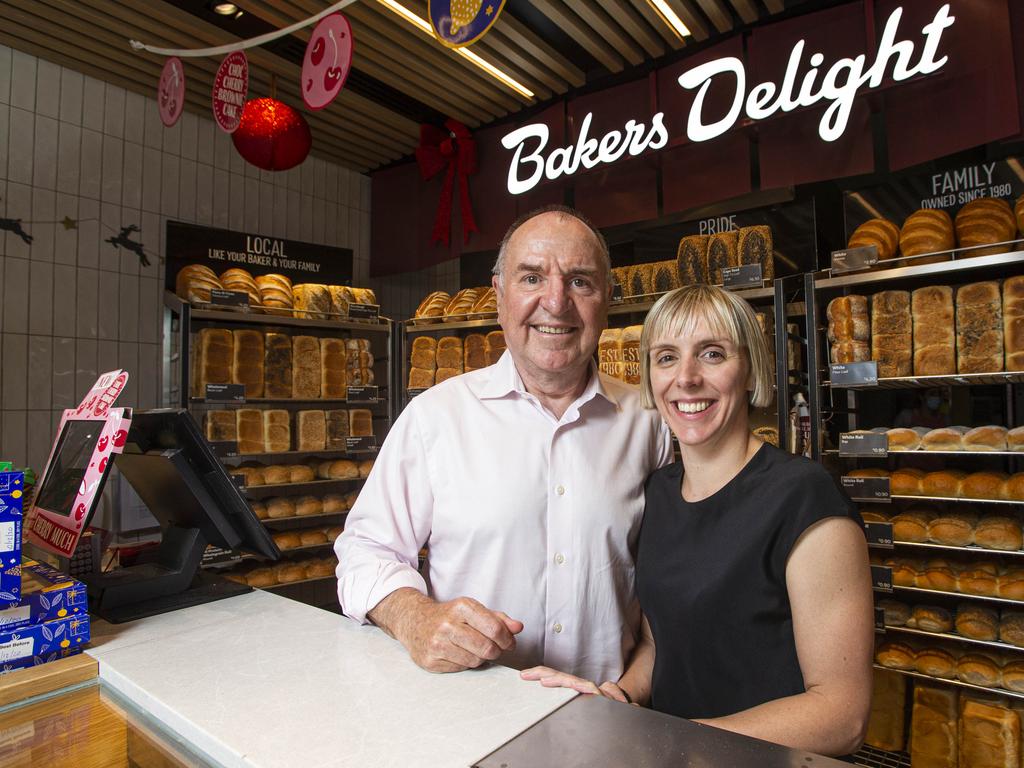Bubs Australia still milking Chinese market despite trade tensions
Infant formula company Bubs Australia is planning to step up its exposure to the China market, despite increasing tensions between China and Australia.

Infant formula company Bubs Australia is planning to step up its exposure to the China market, despite increasing trade and political tensions between China and Australia, according to executive chairman Dennis Lin.
But the ASX-listed company, which specialises in goat milk-based infant formula, also plans to diversify into other overseas markets including Asia and the US.
Sales to China made up 28 per cent of gross revenue in the six months to the end of last year despite the negative impact of Covid-19 on the export market.
“China has always been a pretty big market for us,” said the Taiwanese-born Mr Lin, who is a panellist at the Australian’s Global Food Forum in Sydney on June 1.
“There are more than 12 million babies born in China every year compared to only 250,000 in Australia.”
While he is closely following recent moves by China against Australian exports of wine, barley, beef and lobsters, he believes that infant formula is better protected as it is seen in China as more of a necessity.
“If you look at the infant formula market, every child still has around six people feeding it – two parents and four grandparents.
“And they always want access to the best.”
He said Bubs’ indirect sales to China had been hit by Covid-19 because of the impact on the daigou trade in Australia and the problems with air freighting product to China. Passenger flights, which the company had been using to send its goods to China, were all but suspended.
But he said the company had been able to work around this by sending product by ship directly to bonded warehouses close the area where sales were taking place.
He said Bubs was ensuring that the process was being carried out in compliance with China law, including paying tax of 9.2 per cent on goods going into the bonded warehouses.
He said this ensured these goods could then be sold into the online or offline market in China, including the growing number of mother and baby stores.
“All of our goods are going into China by legitimate means and not by ‘grey’ channels,” he said.
“It has taken us the best part of 12 months to make sure we could redo our supply chain to China in a way which ensured we maintained control and visibility over our products.”
He said Bubs, which has a team of five people based in Shanghai, was planning to expand its representation in the country.
“Within the next 12 months we will be setting up regional offices,” he said.
“We look at China as not one market but as quite a few different regional markets.”
He said Bubs was intending to stick to its current strategy of retaining its English language packaging for its products and not compete with Chinese-made baby formula.
Mr Lin said he was very much aware of the trade tensions between the two countries. “Anyone doing any trade with China needs to be prepared for the worst scenario, otherwise they wouldn’t be doing their job for their shareholders,” he said.
“Even if there is a 1 per cent chance of problems we need to make sure we are always prepared.
“But I still remain confident that China will be a growth market for us.”
Mr Lin said Bubs was also working to expand its markets into other areas in Asia and in the US as part of its diversification strategy.
Bubs is now selling into Vietnam, Malaysia, Singapore, South Korea and Japan and is looking at new opportunities in the competitive US market.
The company recently appointed a global dairy expert, Brazilian-born Fabrizo Jorge, as its chief operating officer to help drive more regional expansion.
Mr Jorge was recently the general manager for Thailand, Laos and Myanmar for New Zealand dairy giant Fonterra.
Before that he was a senior executive in Fonterra’s Australian business.
“We don’t want to just be relying on Australia and China for our markets,” he said.
“We need to make sure we are accelerating some of the plans for the international market.”
He said there were high barriers to entry in the infant formula market around the world, with extensive regulatory requirements for new entrants to each country.
“Some of them take four months but some of them can take two years,” he said.
He said Bubs had already been looking at other markets in Asia apart from China well before the trade sanctions were imposed.
“I’m glad we were prepared,” he said.
“Now that relations with China look more uncertain, at least we have started to lock in some goals in some of the other new jurisdictions.”
Mr Lin said the US also had the potential to be a “really good market” for Bubs because there was an increasing consciousness in the country about food coming from “clean and green” areas.
“We are one of the market leaders in terms of how clean out product is,” he said.
He said Bubs, which also sold organic grass-fed cows’ milk infant formula, was developing a reputation for quality.
“The trade tension with China has been really tough but we are getting on with it. I believe we will come out of it stronger with a better foundation for our business.”







To join the conversation, please log in. Don't have an account? Register
Join the conversation, you are commenting as Logout